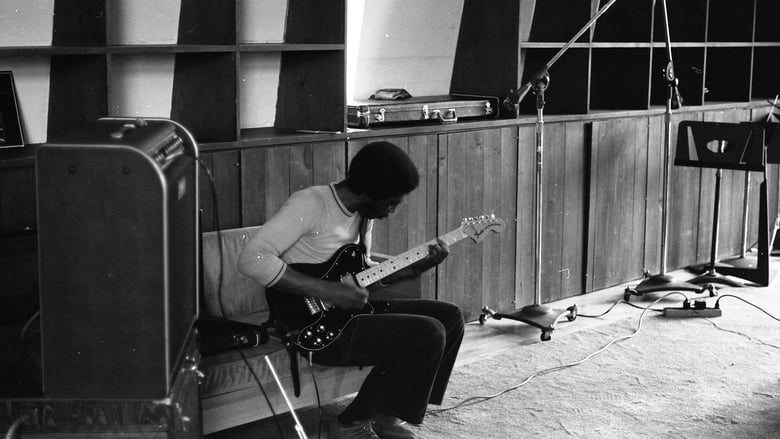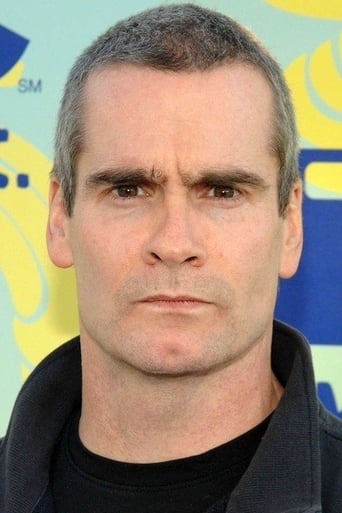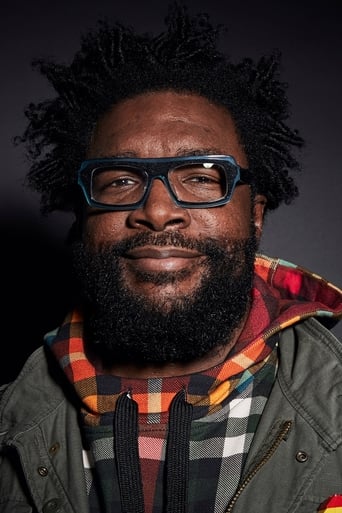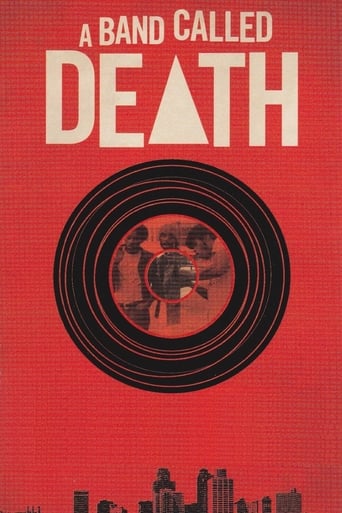
Before Bad Brains, the Sex Pistols or even the Ramones, there was Death. Formed in the early '70s by three teenage brothers from Detroit, Death is credited as being the first black punk band, and the Hackney brothers, David, Bobby, and Dannis, are now considered pioneers in their field. But it wasn’t until recently — when a dusty 1974 demo tape made its way out of Bobby’s attic nearly 30 years after Death’s heyday — that anyone outside a small group of punk enthusiasts had even heard of them.
Similar titles
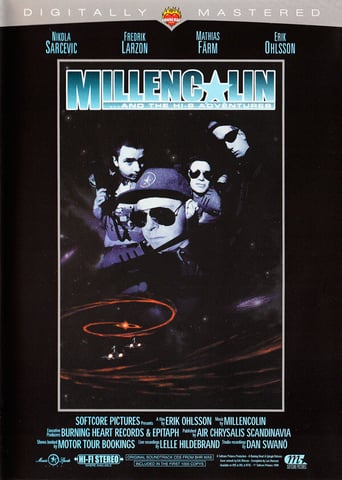
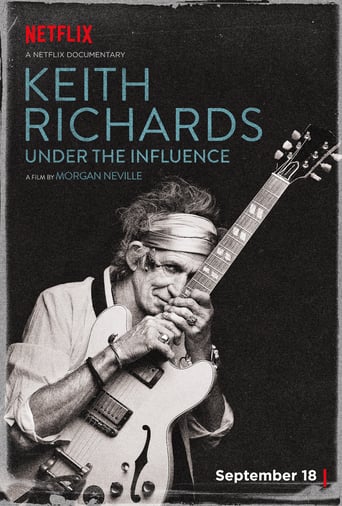
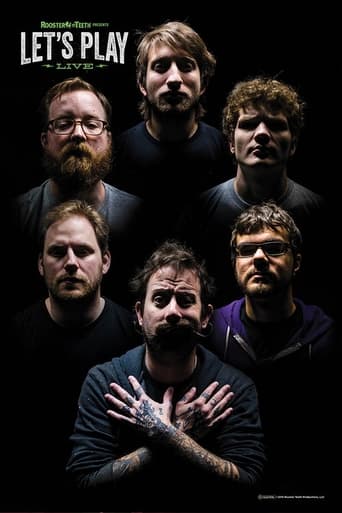
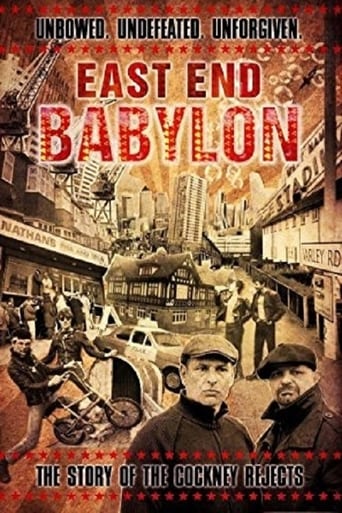

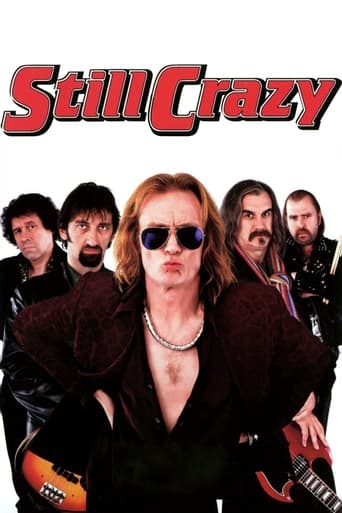

Reviews
It's no definitive masterpiece but it's damn close.
A great movie, one of the best of this year. There was a bit of confusion at one point in the plot, but nothing serious.
It's a good bad... and worth a popcorn matinée. While it's easy to lament what could have been...
A terrific literary drama and character piece that shows how the process of creating art can be seen differently by those doing it and those looking at it from the outside.
"A Band Called Death" is a very different type of rockumentary. It's a film about close family ties, belief in God, staying true to oneself regardless if this determination leads to missed opportunities, and finally a redemption of sorts. It also IS about death (of the lead guitarist, bandleader, and songwriter) and concentrates on that more than anything else. The film celebrates the band's writing and sound, but there is not that much of their music included. Was "Death" musically way ahead of their time? To an extent yes. But a band named "The Stooges" came before them.
There's an undercurrent of disappointment throughout the story of a band called Death. Misunderstood and marginalized in their time, they endured a lot of rejection and settled into lives that turned out differently than for what they had hoped. Then, after their music is rediscovered and shared, they reunite, but with a heavy heart knowing their visionary leader did not live to see the rebirth. And yet, through that malaise, the band's story is one of joy, familial devotion, and believing in something so strongly, it can't help but come true. It shows that powerful art can create double lives. It shows the unknown pleasures of digging into the past for the untold stories. And the songs? Dang man, these songs slay.
Stuck in the shadow of Searching for Sugar Man, this tale of an all-black protopunk band from Detroit hits many of the same notes, but plays its own tune. This is a film whose appeal may be more limited than Sugar Man due to the hard and raw style of the band in question, but the music unearthed is no less vital.Death's story is told mostly from the perspective of Bobby and Dannis Hackney, the bassist/vocalist and drummer, respectively. They recount the birth of Death and walk you through some of the places of note. We're robbed of the opportunity to hear from who we learn is the driving force behind the band, guitarist David Hackney, who sadly passed away from lung cancer in 2000. He does make appearances in the movie in the form of audio recordings and you get a sense of the unique viewpoint that gave the band its vision through these recordings and his brothers' recollections.It's that vision that shaped Death, and ultimately, limited their potential. Being steadfast about not changing the name of the band, David felt the name went with the concept he had for the band and, as such, he was resolute. Even when record mogul Clive Davis came knocking – loving the music but hating the name – David chose to pass the opportunity by rather than compromise. This, in a nutshell, is the answer to the great mystery of how they were deprived their stardom. Fortunately, the film has more to offer than that.It's watching Bobby's sons, and the effect his early music has on them that provides the film with its heart and makes it more than a just sad story about how elusive fame may be. Their drive and determination to get their father's music out by-any-means-necessary is inspiring to watch. The excitement with which they recall finding out their dad is a rock pioneer is written all over their faces. Bobby had instilled in his sons a deep appreciation of music of all kinds, just like his father had done for him, and it turned out they appreciated his music most of all.Sounding like Love, The Who, Buzzcocks, The Saints, The Damned and The Real Kids all playing with The Stooges' gear, it's easy to see why there was so much excitement for Death's recent rediscovery. Chance plays such a big part in any musical success, it's little wonder that so many great artists fall through the cracks. One supposes that with the success of Searching for Sugar Man, these documentaries attempting to right musical wrongs might become their own subgenre. If that's the case, you can count me as an early enthusiast. These stories speak to the longevity of art and the way it sits there patiently, waiting to be discovered and the magic that happens when you do. As Henry Rollins puts it, "It's one of those things that keeps you going to the record store hoping for another great story like that."
In recent years there seems to have been a cycle of music documentaries about musicians of whom success has eluded. In Anvil: the Story of Anvil we have a band who have had extremely limited success over a very long period, in Searching for Sugarman we have an artist who had extremely minor success and then disappeared only to be rediscovered a quarter of a century later to great acclaim and in 20 Feet from Stardom we have the story of singers whose work we hear everywhere but of whom remain unfairly obscure. A Band Called Death contains elements of all of these documentaries, except in this one the band didn't even release an album until 35 years after their initial demo.Death were a Detroit proto-punk band. Not only that but they were an all-black proto-punk band, which makes them very unique. There were very few black musicians operating in this area of music back in the 70's. Its details like this that makes their story all the more unusual. Having heard their music, I have to say it was pretty good. Forget proto-punk, this stuff sounded more like post-punk. Its combination of aggression with tight highly skilled musicianship was certainly ahead of its time and sounds more like the more expansive alternative rock that followed in the wake of the punk years. I suppose, looking back on it, being so ahead of their time was one of the problems the band had in getting a record deal. Likewise, their name was a major handicap. Band leader David Hackney conceived of the name and insisted on it being retained at all costs. This of course led to the group losing the one record contract they were offered. It is testament to David's principles but it does seem like a self-defeating stance, as it's the music that counts most, the name is so much less important and we are left wondering what could have been. Of course, a name like 'Death' and music such as theirs is entirely in-step with today's contemporary alternative rock, which is why they were rediscovered to such fanfare. It's great to see them finally have their time in the sun.The two surviving brothers are genuinely good blokes and we learn most of the story of the band from them. Their brother David died some time round about the year 2000 of lung cancer, so there is a bittersweet nature to the band's late acceptance and success. David was the main visionary of the band. He was a dreamer. It is sad that he never saw the band achieve its long-overdue success but until his dying day he always was convinced that one day people would come looking for their music. And he was proved correct. The film perhaps falls a bit short in detailing the Detroit rock scene of the time. It almost paints a picture where Death were the lone purveyors of this kind of confrontational rock music. This makes them seem more unique but it would have been good if the documentary at least acknowledged fellow Detroit pioneers such as The Stooges and The MC5. It would have put the band and Detroit itself into a bit more historical context. Also, it would have been interesting to know if they had a local following at the time and played any gigs. But, despite these minor issues, the film is still very successful because these guys were genuinely good and it's not a rose tinted spectacle affair. The film also functions as a mechanism for their music to reach an even wider audience and this in itself is a good enough reason for its existence. But the main thing is that now Death have been added to the rock family tree as an important precursor to punk and alternative rock. Even if, in the final analysis, none of that changes the fact that 'Death' is still a terrible name for a band
Top Streaming Movies











